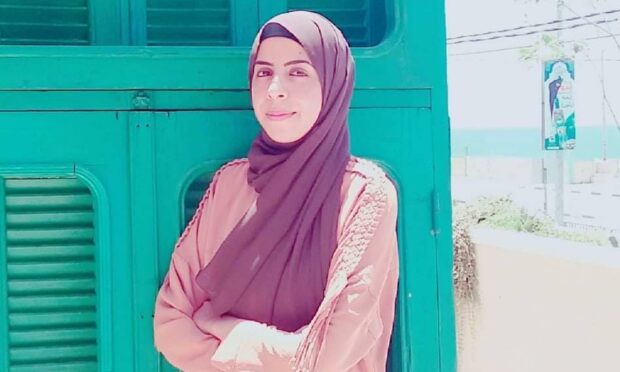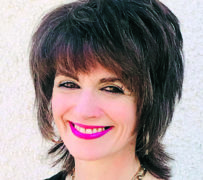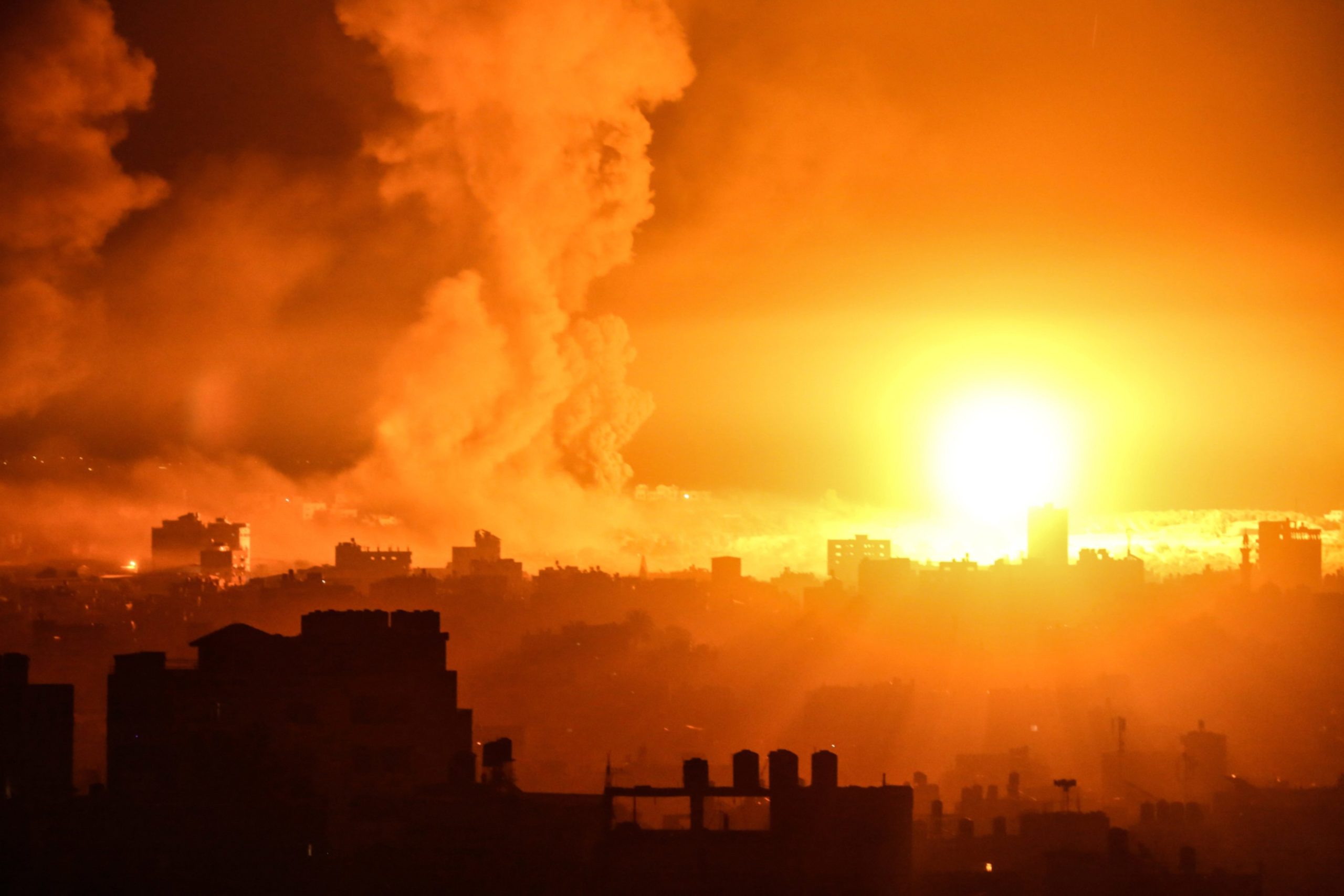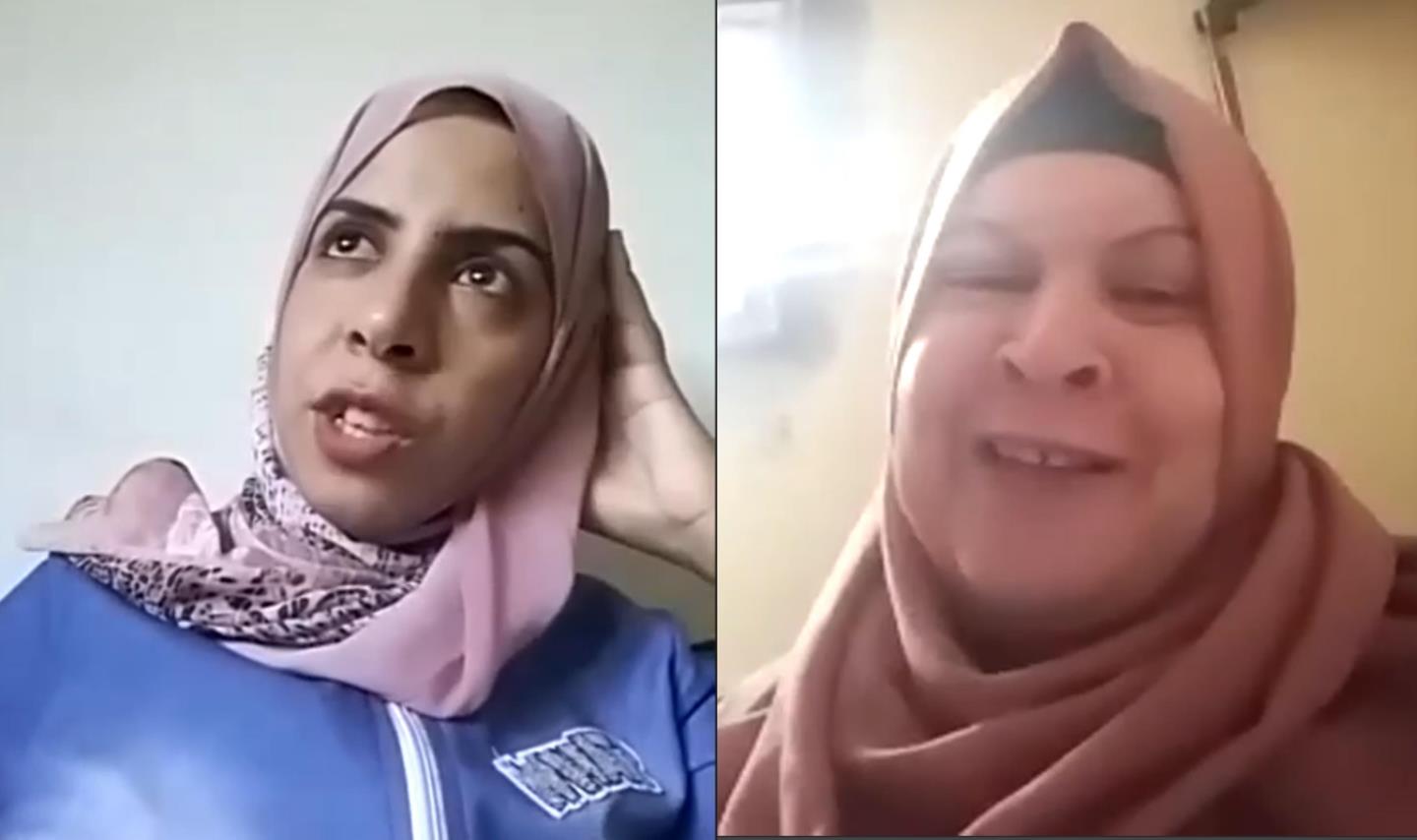When the Israeli bombs exploded and the eerie, high-pitched wail of sirens surrounded her, Amal said her final prayers. Then she hired a taxi.
At 25, her thoughts should have been of the future, but death always felt close now; an unwanted, hovering companion. Still, someone needed to go for shopping.
Around her, in the shelter, there was nothing but blank space. No chairs or mattresses for the elderly. No milk for the children, whose frightened faces haunted her. They must not worry; the bombs were falling far from here, she lied. They did not believe her.
“We were living in hell,” recalls Dr Nawal, who was also in Gaza, where she runs a rescue organisation supporting women and children. Both she and Amal are part of a group connecting Highland and Palestinian women, and we talk online with the help of Huda, our skilled interpreter.
During the recent conflict, Nawal was holed up in the flat she shares with her sister and aunt. As hostilities raged between Hamas and Israeli forces, her brothers joined them from the flats above, and other relatives too, huddling together for solidarity and for safety.
Sometimes, there were 50 people in one room. But there was no safety, says Nawal. Only the constant fear that any minute, they would die.
That fear returned this week. Last month’s uneasy ceasefire is stuttering and the new, hard-line coalition Israeli government has launched more airstrikes in response to Hamas incendiary balloons.
A legitimate demand for justice
The women animatedly discuss the reasons for recent flare-ups. The way Israeli soldiers entered the Al-Aqsa mosque, one of their holiest sites, and cut the cables to the speakers that broadcast prayers to the faithful.
Close by, the Israeli president was giving a speech at the sacred Jewish site, the Western Wall, and they feared his words would be drowned out. Then there was the flag-waving parade where Israelis shouted: “Death to Arabs”. The Hamas incendiary balloons followed.
Recent hostilities killed 13 Israelis, but the full might of the Israeli government, unleashed on the occupied territories, killed 250 Arabs. Thousands of ordinary Palestinian families have been brutally displaced in Gaza, and clashes there continue.
At the heart of the David and Goliath aggression lies an historic dispute: the Arabs’ demand to be safely reinstated in their homelands. A legitimate demand for justice and autonomy.
‘We have no power’
When the ceasefire was announced, it brought no normality. The electricity was cut, the wifi was dead, and the water tanks were shot down. Amal, Nawal and the women of Gaza tried to keep their families together without running water or light, with constant food shortages, and on top of that – Covid.
In the tensions, domestic violence increased steeply. Women, says Dr Nawal, are second class citizens. They sacrifice everything to be with their children because if they leave, they lose everything. Then there are honour killings.
Both Amal and Nawal fall silent when asked about Hamas strategy. Talking politics is dangerous. One can only wonder at the secret thoughts of women who mop up the effects of male decisions they are mostly excluded from.
‘We are full of hope for peace,’ she says, adjusting her pale pink head scarf over her shoulders. ‘We know that peace in our lifetime depends on our youth.’
The constant but largely ineffective barrage of rockets that Hamas fire provokes the might and cruelty of the Israeli government in futile displays of male power and control. “We have no power,” says Nawal, simply.
But there is increased awareness of gender in Gaza – young people no longer prepared to accept the way things are. Amal is a youth activist, one of four chosen by the UN from 1,000 applicants for a peace initiative. She was excited when the Hamas government announced the first election for 16 years and deflated when it was subsequently delayed.
Still, Amal’s dangerous taxi journey was evidence of a community spirit that sees her optimistic for the future.
“We are full of hope for peace,” she says, adjusting her pale pink head scarf over her shoulders. “We know that peace in our lifetime depends on our youth.”
The pictures don’t reflect the feelings
The reports on the plight of the Palestinian people make for ugly reading. Apartheid. Ethnic cleansing. All of mankind’s worst attributes laid bare: ambition, tribalism, cruelty, control, revenge.
In our compassion-fatigued world, perhaps we stop responding to images of bombs and destruction. “The pictures do not adequately reflect the feelings,” says Dr Nawal, “The intensity of the situation.”
In the most entrenched conflicts – such as we saw in Ireland – the biggest danger is the cultural legacy that gets passed down: the inherited hatred
So it is the feelings we end with. The feelings of women trying to work for peace in a political arena governed by men. The feelings reflected in the faces of the children Amal tries in vain to comfort.
In the most entrenched conflicts – such as we saw in Ireland – the biggest danger is the cultural legacy that gets passed down: the inherited hatred.
Right now, the children of Gaza are scared. Amal and Nawal plead with the international community – with us – to help them. For when the light of fear in children’s eyes hardens into dark hatred, we are, all of us, lost.
Catherine Deveney is an award-winning investigative journalist, novelist and television presenter



